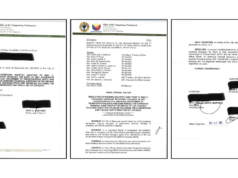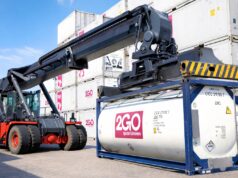NEW OPPORTUNITIES: SBMA chair and administrator Wilma T. Eisma says Subic continues looking for economic growth amid limitations from the Covid-19 pandemic. Photo by Malou Dungog
SUBIC BAY FREEPORT — The Subic Bay Metropolitan Authority posted positive records in most of its key performance indicators this year, including a P1.66-billion operating revenue that surpassed last year’s first half profits by 8.62 percent.
In a report to the Office of the President, SBMA chair and administrator Wilma T. Eisma said the Subic agency “capped its 2021 first semester performance with major accomplishments in its key measures” even when a few areas remain impacted by the Covid-19 pandemic and recorded actual decline.
“The general trend is upward where the SBMA was able to accelerate growth and surpass its performances in the previous year,” Eisma added in her report dated July 15.
Among the measures showing positive growth from January to July 2021 were operating revenue, port operations, employment, business registration, and import and export performance. Only tourism income, non-containerized cargo volume, and committed investments have yet to pick up, Eisma said.
For starters, SBMA’s operating revenue increased from P1.53 billion in the first six months of 2020 to P1.66 billion in the same period this year. Eisma said that while this was still short by P226 million, or 11.96 percent, when compared to the pre-pandemic record of P1.88 billion in 2019, “it still shows how fast Subic is able to recover from the effects of the Covid-19 health crisis and the resulting global economic slowdown.”
Subic’s revenue growth in the first half is boosted by a P718-million collection from leases, P685 million from port operations, P189 million from regulatory fees, and P69 million from miscellaneous sources.
Meanwhile, SBMA’s port revenue reached P645.8 million in the first semester, which was 17 percent higher than last year’s figures. The increase came mainly from a 14 percent increase in containerized cargo, which rose from 107,740 TEUs in 2020 to 122,862 TEUs this year, even when non-containerized cargo slid by 2.5 percent from 3.54 million metric tons in 2020 to 3.46 million MTs this year.
Eisma also pointed out that Subic performed better in terms of import and export, with $842.29 million in imports that was 40 percent higher than the $601.8 million last year, and $636.8 million in export value that was 86 percent higher than last year.
Meanwhile, the Subic Bay Freeport workforce kept growing despite the pandemic. From a total of 134,268 in 2019, it grew to 138,110 by the end of 2020 to 138,964 in the first half of 2021. The services sector employed a total of 101,390 workers or about 73 percent.
Likewise, even when the 2021 first semester committed investment total of P873.75 million was 14 percent lower than that of last year’s, the number of registered Subic investors continued to grow from 1,691 in 2019 to 1,706 in 2020 and to 1,744 by midyear 2021.
In terms of tourism, meanwhile, Subic posted a modest grown of 32 percent with 3.2 million same-day visitors in the first half of 2021; a slight increase in tourist arrivals from 149,951 in 2020 to 206,229 this year; as well as a modest growth in hotel occupancy, which increased from 20% in 2020 to 26.7 percent this year.
Eisma attributed the growth in key sectors to sound economic policies, best practices in anti-Covid measures, and a vision for renewed growth under the new normal.





